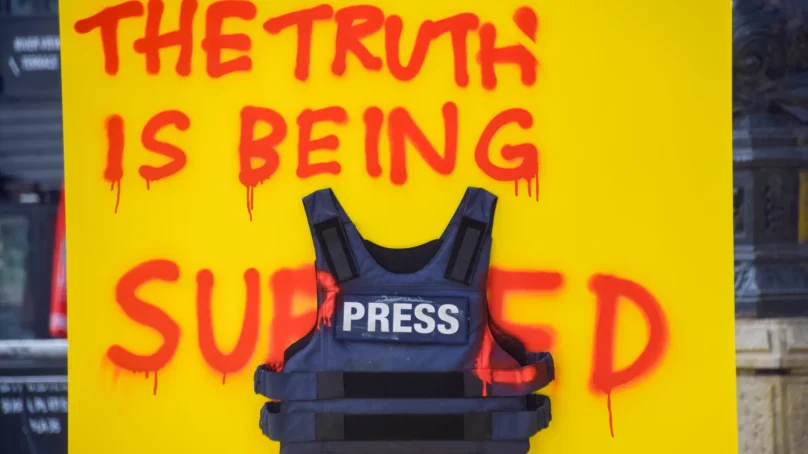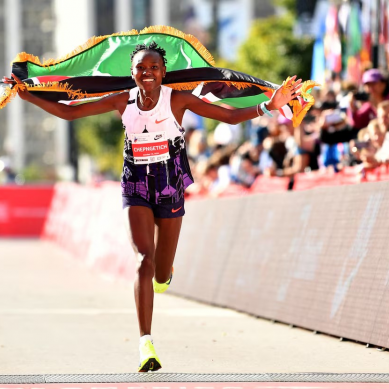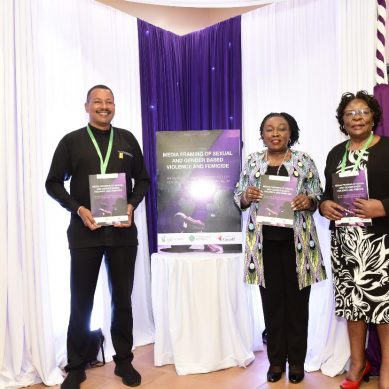
On a bitingly cold day in January this year, a decision was announced in Washington that quietly triggered a global emergency. On that day, the US government suspended almost all its foreign assistance, including much of its funding for independent journalism abroad.
The impact was immediate and devastating. In South Sudan, the only national, independent FM radio station cut its staff by 75 per cent. In Afghanistan, where journalists already risk their lives under Taliban rule, outlets have gone dark and exiled reporters face deportation back to Kabul. In Latin America, dozens of newsrooms have closed or are on the brink. And in countries like Myanmar, Sudan and Venezuela, the loss of funding hasn’t just meant fewer headlines – it has meant fewer protections against propaganda, censorship, and state violence.
If this sounds like a niche issue, think again. When journalism disappears, so does accountability. So does access to lifesaving information. So does the public’s ability to make informed decisions in moments of crisis, be it an election, a health emergency or a war.
Independent journalism is one of the strongest defences we have against polarisation, extremism and authoritarianism. But in many parts of the world, it simply cannot survive without support.
Of course, there are many countries and many foundations, philanthropists and individuals who have supported journalism in myriad ways and continue to do so. But the sudden, chaotic and unpredictable nature of the US foreign assistance cuts hit hard.
Independent journalism is one of the strongest defences we have against polarisation, extremism and authoritarianism. But in many parts of the world, it simply cannot survive without support. Advertising doesn’t work in conflict zones. Subscription models don’t sustain outlets serving rural, low-income communities. That’s why donor funding, especially from the US and Europe, has been so essential. And it’s why its sudden removal has caused such deep harm.
Over the past decade, US funding for independent media didn’t just keep outlets open – it supported legal protections for journalists, built infrastructure for fact-checking and trained reporters to investigate everything from corruption to climate change. Crucially, it came with guardrails to protect editorial independence. That meant these media could serve the public interest, not the agenda of any one government.
Now, those guardrails are gone and bad actors are moving in. Some outlets report being approached by authoritarian governments offering funding with strings attached: favourable coverage in exchange for survival. This is how information gets captured. This is how democracies wither.
Yet despite the hardship, many of Internews’ media partners refuse to give up. They’ve downsized, fundraised and pivoted. In some cases, they’ve kept reporting even without pay. Their dedication is astonishing, but it’s not enough. If we don’t act now, we will lose them. And with them, we will lose something far more valuable: the public’s right to know.
The good news? This crisis is still solvable. Even small, well-targeted investments can go a long way. Emergency funding can keep journalists safe. Core support can preserve trusted outlets in fragile states. Training and legal aid can ensure that media workers can do their jobs without fear. And with better coordination, donors can maximise the impact of every euro, pound or dollar.
This is not about rescuing an industry. It’s about protecting a principle: that people, everywhere, deserve access to accurate, independent and reliable information; that honesty still matters; that journalism still matters.
At Internews, we’ve seen time and again how resilient independent media can be when given even the slimmest lifeline. Now, we need to ensure that the lifeline doesn’t disappear altogether. Because if we allow the lights to go out in the world’s most vulnerable media landscapes, we won’t just be losing stories: We’ll be losing voices, freedoms and the very foundations of democracy.
- A Tell Media report – courtesy of The New Humanitarian







